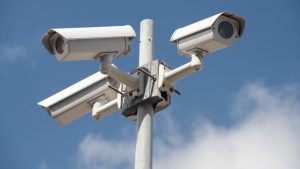Federal information sharing is key to combating terrorism and cyber threats, according to law enforcement representatives from several states.
U.S. states are some of the largest employers in the country, so it only stands to reason that they are and can be some of the most influential advocates of preventive medicine and wellness programs for Americans.
Texas on Sept. 1 launched an IT marketplace website for state agencies to get the best deals for cloud services, the Lone Star State’s CIO tells MeriTalk.com. “Texas is leading the country on cloud. We have more cloud contracts in place than any other state,” CIO Todd Kimbriel said in an interview.
California’s Child Welfare Digital Services Team is working to create an updated case management system to help social workers who deal with high caseloads.
A new tool called the Electronic Recovery and Access to Data Prepaid Card Reader allows police officers to check the balance of cards, including credit and debit cards, gift cards, hotel key cards, library cards, and Metro cards. The device will be useful because criminals rarely travel with stacks of paper money anymore.
For the first time in state history, Maryland’s state government website was named the best in the country by the Center for Digital Government’s Best of Web competition.
The Office of the National Coordinator for Health Information Technology has announced the winners of the Use of Blockchain in Health IT and Health-related Research Challenge.
The Federal Communications Commission issued a plan to provide Alaskan broadband carriers with fixed amounts of support over the next 10 years to provide Internet to all parts of Alaska, despite dissent from commissioners.
The Federal Aviation Administration will replace existing air traffic control procedures in Southern California with new satellite-based procedures as part of its Next Generation Air Transportation System.
The Department of Homeland Security Science and Technology Directorate’s First Responders Group is creating software designed to help search-and-rescue groups. In a partnership with dbS Productions, FRG developed FIND to track lost individuals, some of whom may be children or people with disabilities.













